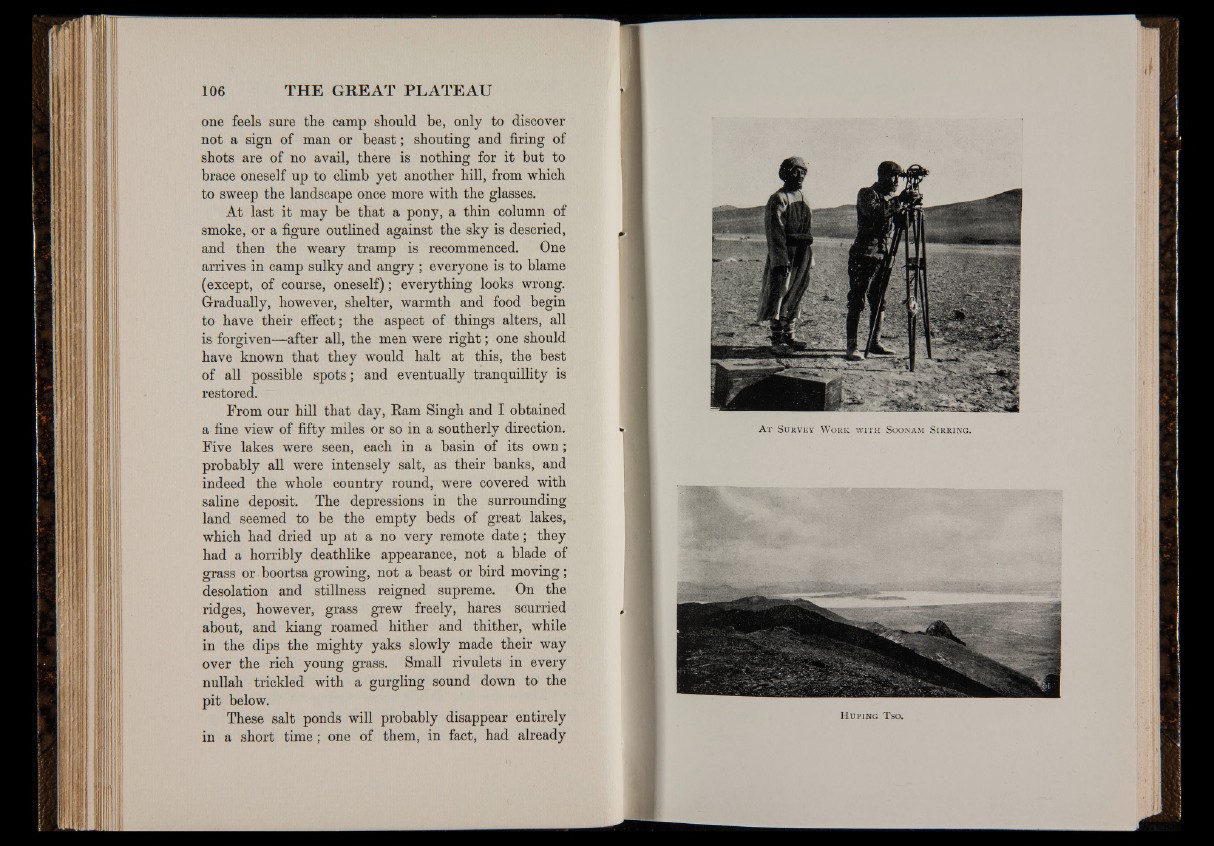
one feels sure the camp should be, only to discover
not a sign of man or beast; shouting and firing of
shots are of no avail, there is nothing for it but to
brace oneself up to climb yet another hill, from which
to sweep the landscape once more with the glasses.
At last it may be that a pony, a thin column of
smoke, or a figure outlined against the sky is descried,
and then the weary tramp is recommenced. One
arrives in camp sulky and angry ; everyone is to blame
(except, of course, oneself); everything looks wrong.
Gradually, however, shelter, warmth and food begin
to have their effect; the aspect of things alters, all
is forgiven—after all, the men were rig h t; one should
have known that they would halt at this, the best
of all possible spots; and eventually tranquillity is
restored.
From our hill that day, Ram Singh and I obtained
a fine view of fifty miles or so in a southerly direction.
Five lakes were seen, each in a basin of its own;
probably all were intensely salt, as their banks, and
indeed the whole country round, were covered with
saline deposit. The depressions in the surrounding
land seemed to be the empty beds of great lakes,
which had dried up at a no very remote d ate ; they
had a horribly deathlike appearance, not a blade of
grass or boortsa growing, not a beast or bird moving;
desolation and stillness reigned supreme. On the
ridges, however, grass grew freely, hares scurried
about, and kiang roamed hither and thither, while
in the dips the mighty yaks slowly made their way
over the rich young grass. Small rivulets in every
nullah trickled with a gurgling sound down to the
pit below.
These salt ponds will probably disappear entirely
in a short time; one of them, in fact, had already
H u p in g T so.